


Center for Life Ethics
Schaumburg-Lippe-Straße 7
D-53113 Bonn



Center for Life Ethics
Schaumburg-Lippe-Straße 7
D-53113 Bonn
Our ability to find just and sustainable solutions to global eco-social threats will critically depend on negotiating and integrating divergent ethical perspectives and positions. Different notions of 'human', 'non-human', 'nature' or 'environment' have to be considered for our projections of possible and desirable, sustainable futures. This requires recognising the legitimacy of divergent world views, including the possibility of ‘other worlds’, engaging in equitable, pluriversal dialogues about the impacts we can expect from different ways of worldmaking, and ultimately reconsidering our scientific practices accordingly.
From 20-24 May 2024, a transdisciplinary group of thirty (30) academics, professionals and activists from Latin America, Africa, Asia and Europe met at the Center for Life Ethics in Bonn. For an entire week, participants engaged in pluriversal dialogues, sharing practices, experiences and ideas on environmental ethics and education for futures beyond ‘development’. A series of talks and workshops provided space for experiencing and reflecting on different co-creative, dialogical and performative practices and methodologies from intercultural and environmental research and education.
The event opened on Monday morning with a ritual ceremony in the ruins of the former cathedral of the Heisterbach Monastery at the hillside along the margins of the River Rhine, followed in the afternoon by a Güxamkan (dialogical Mapuche practice for collective deep analysis) on Mapuche conceptions of ‘person’, ‘nature’ and ‘environment’.
Over the following days, participants engaged in embodied forms of sentipensar (‘feel-thinking’) such as forum theatre, systemic constellation, theatrical storytelling and playful games, in indigenous methods for intercultural knowledge cocreation such as contextual translation and the Breeding and Sowing of Wisdom and Knowledge (Crianza y Siembra de Sabidurías y Conocimientos, CRISSAC), and other performative and dialogical practices. Workshop sessions were followed by short presentations on research topics and ongoing projects by participants, including decolonial gender studies, indigenous notions of life, ethics, nature and more-than-human relations from Abya Yala [1] and West Africa, the pluriverse as a conceptual tool for transformative action in science and the arts, the United Nations University’s WISE Initiative for valorising indigenous knowledge for more just and sustainable futures, on intercultural indigenous schools and universities (Amawtay Wasi, Ecuador; UAIIN, Colombia) and their educational and research frameworks (e. g. CRISSAC), and scientific conceptions of non-causal phenomena.
The event concluded on Friday afternoon with a closing ritual followed by final reflections and a co-creative workshop on possible follow-up projects to be developed jointly by the participants.
The event was part of a joint project co-organized by a consortium of different Institutes [2] at the University of Bonn (Center for Life Ethics, Global Heritage Lab, Interdisciplinary Center for Latin American Studies, Institute for Archaeology and Cultural Anthropology, ZEF Center for Development Research) with funding from the Transdisciplinary Research Areas (TRA) 4 ‘Individuals, Institutions and Societies’, TRA 5 ‘Present Pasts’ and the Argelander Programme and being coordinated by Jan Linhart (Center for Life Ethics) and Alejandro Mora Motta (Global Heritage Lab) with the active participation of the invited participants. Our experience in Bonn was also nurtured by preparatory research activities (e. g. Towards Pluriversal Dialogues research project), including a minga [3] at the Autonomous Intercultural Indigenous University (UAIIN) in Popayan (Colombia, February 2024), where we prepared a selection of indigenous practices with a particular potential for enhancing pluriversal dialogues to be validated in Bonn.
By assessing these practical experiences from different disciplinary, positional, cultural and geopolitical perspectives, we hope to gain deeper insights concerning the potential, viability and challenges of mobilising divergent perspectives for co-creating socially and ecologically just and sustainable solutions. In addition, our encounter in Bonn was designed as a kick-off event and seed incubator for joint publications and follow-up projects among the participants.
[1] Abya Yala, meaning ‘mature land’ in Kuna language, is how many American native nations call their continent.
[2] Dr. Luis Fernando Sarango (Kichwa), Director of the Pluriversidad Amawtay Wasi, Ecuador; Abelardo Ramos (Nasa), UAIIN, Colombia; Claudia Palechor (Yanacona), UAIIN, Colombia; Gabriel Llanquinao (Mapuche), Universidad Católica de Temuco, Chile; Francisca Elias Canás (Kaqchikel), Escuela Normal Bilingue Intercultural NIM NA’OJ, Guatemala; Dr. Pablo de la Cruz, Fundación Gaia, Colombia; Dr. Yilson Beltran, Universidad Nacional de Colombia; Dr. Gillermo Pacheco, Universidad Austral de Chile; Ruth Sanders, Politik im Raum, Germany; Dr. Nikolaus von Stillfried, Paradox Science Institute, Germany; Fritz Letsch, Netwerk Gemeinsinn, Germany.
[3] Kichwa/Quechua practices of mutual aid and collective work to join forces for larger endeavours, such as building a house, preparing or harvesting a field.
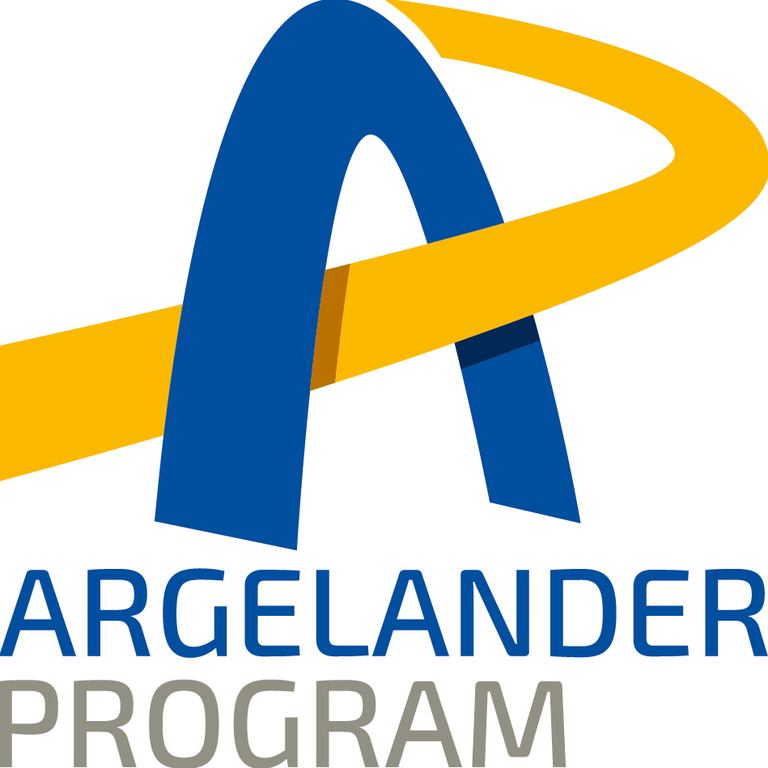
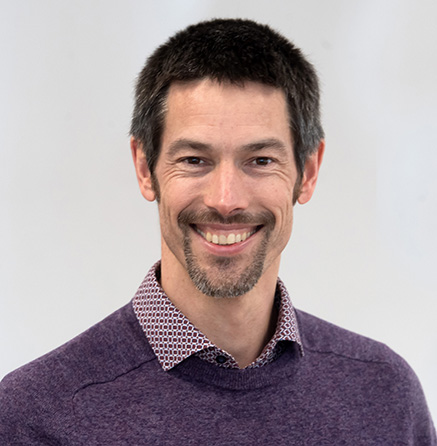
Research Area Globalization
Center for Life Ethics
Schaumburg-Lippe-Straße 7
53113 Bonn
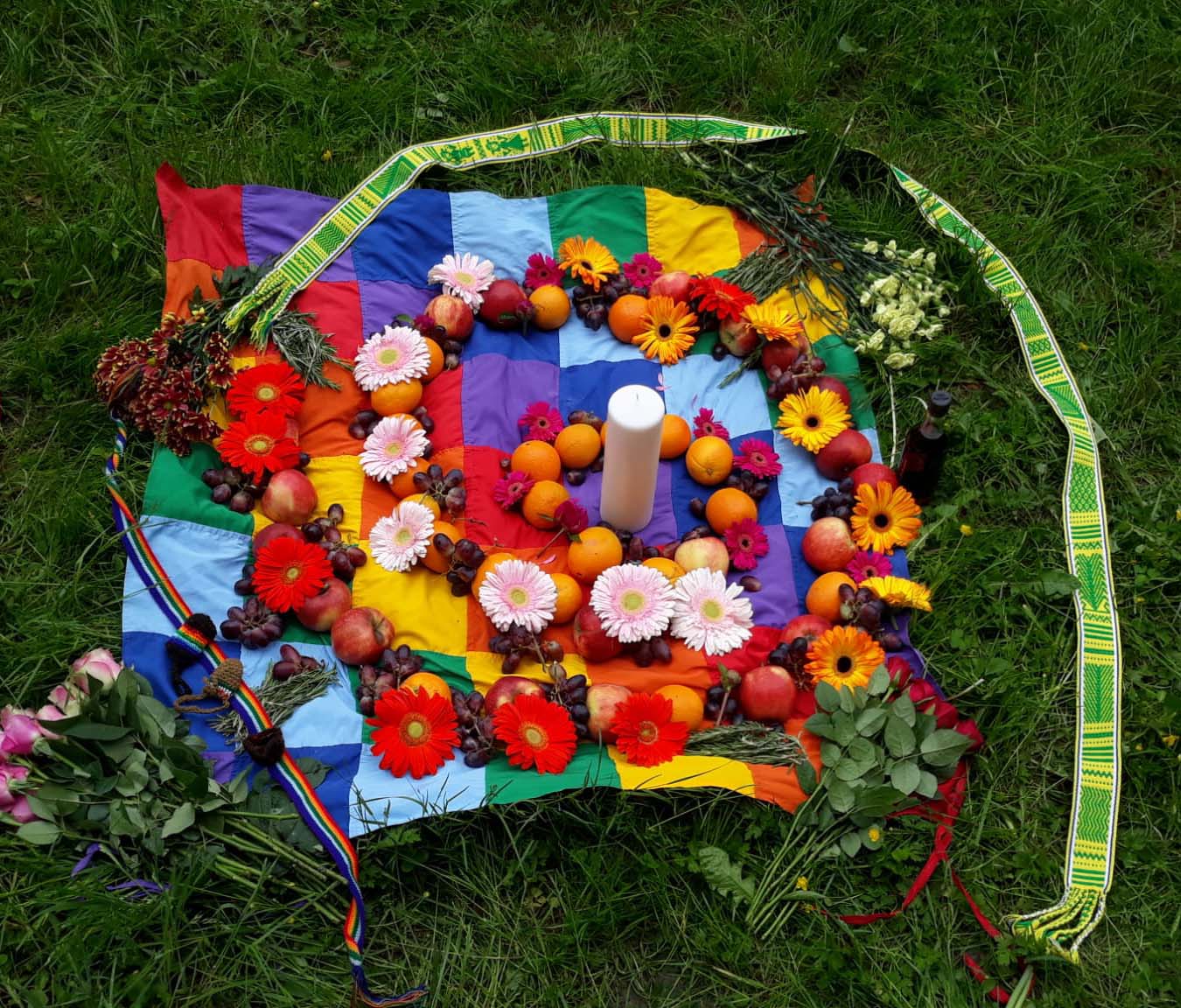
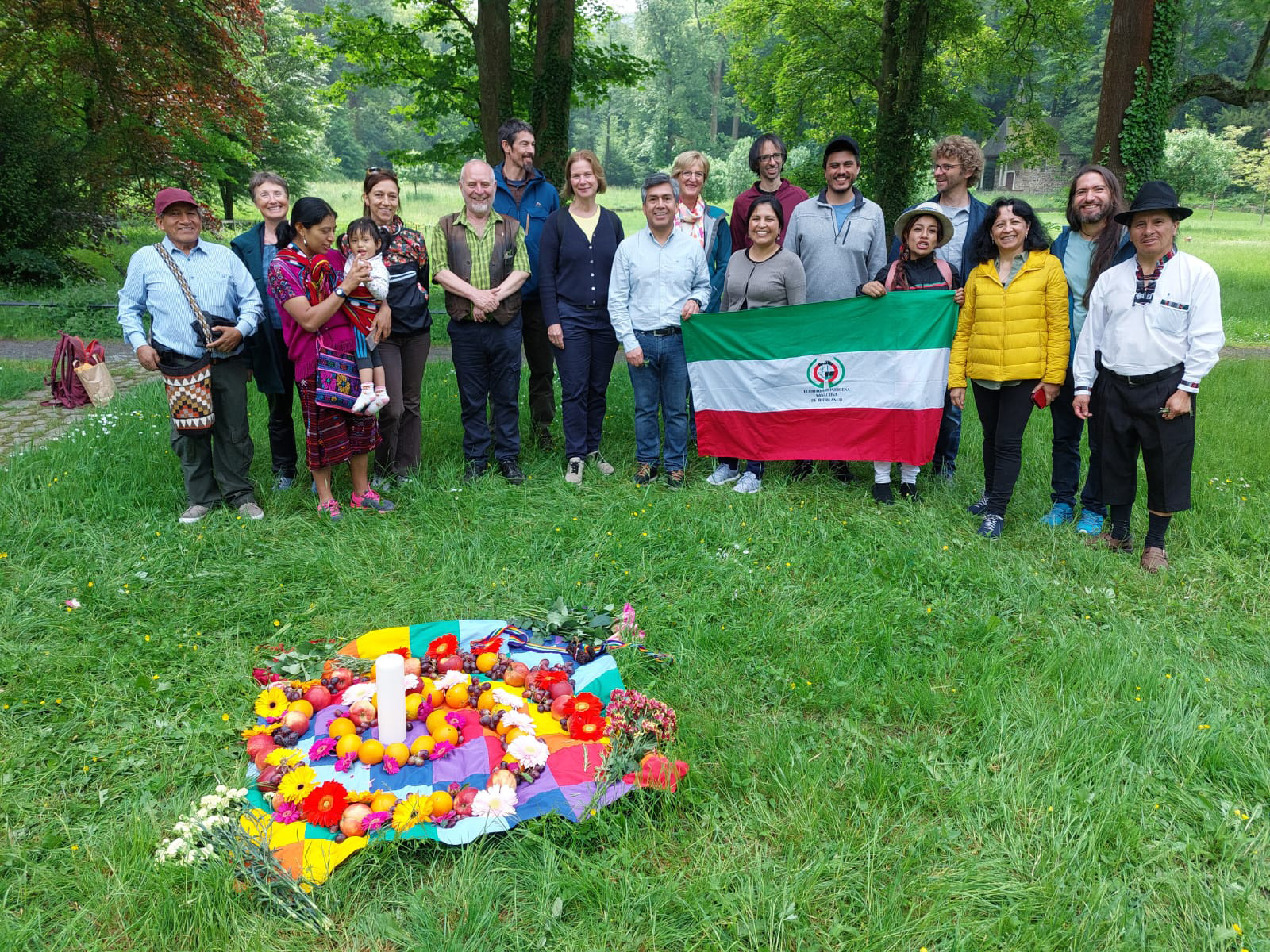
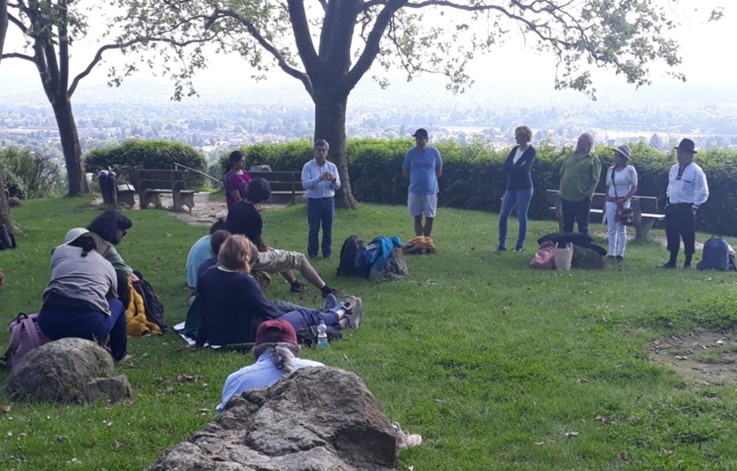
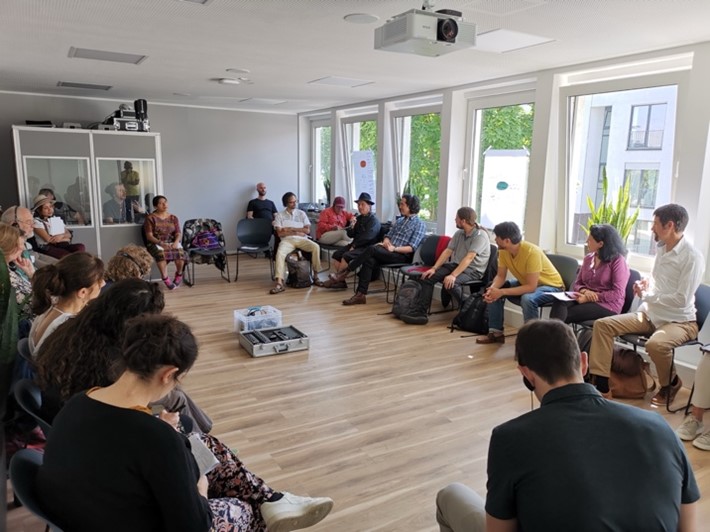
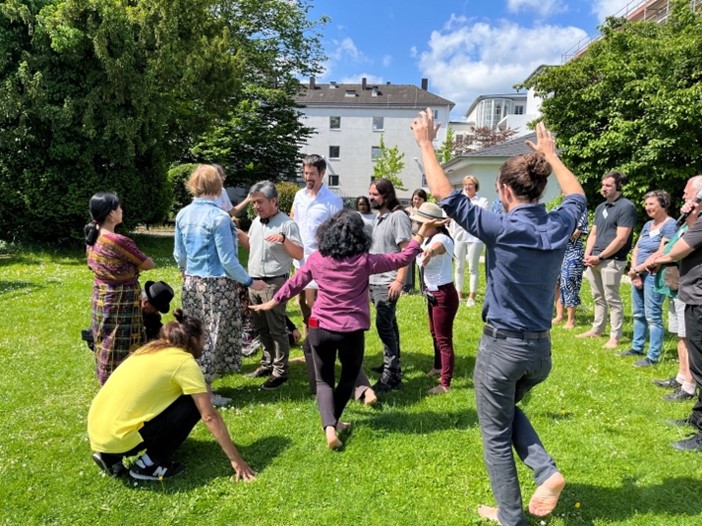
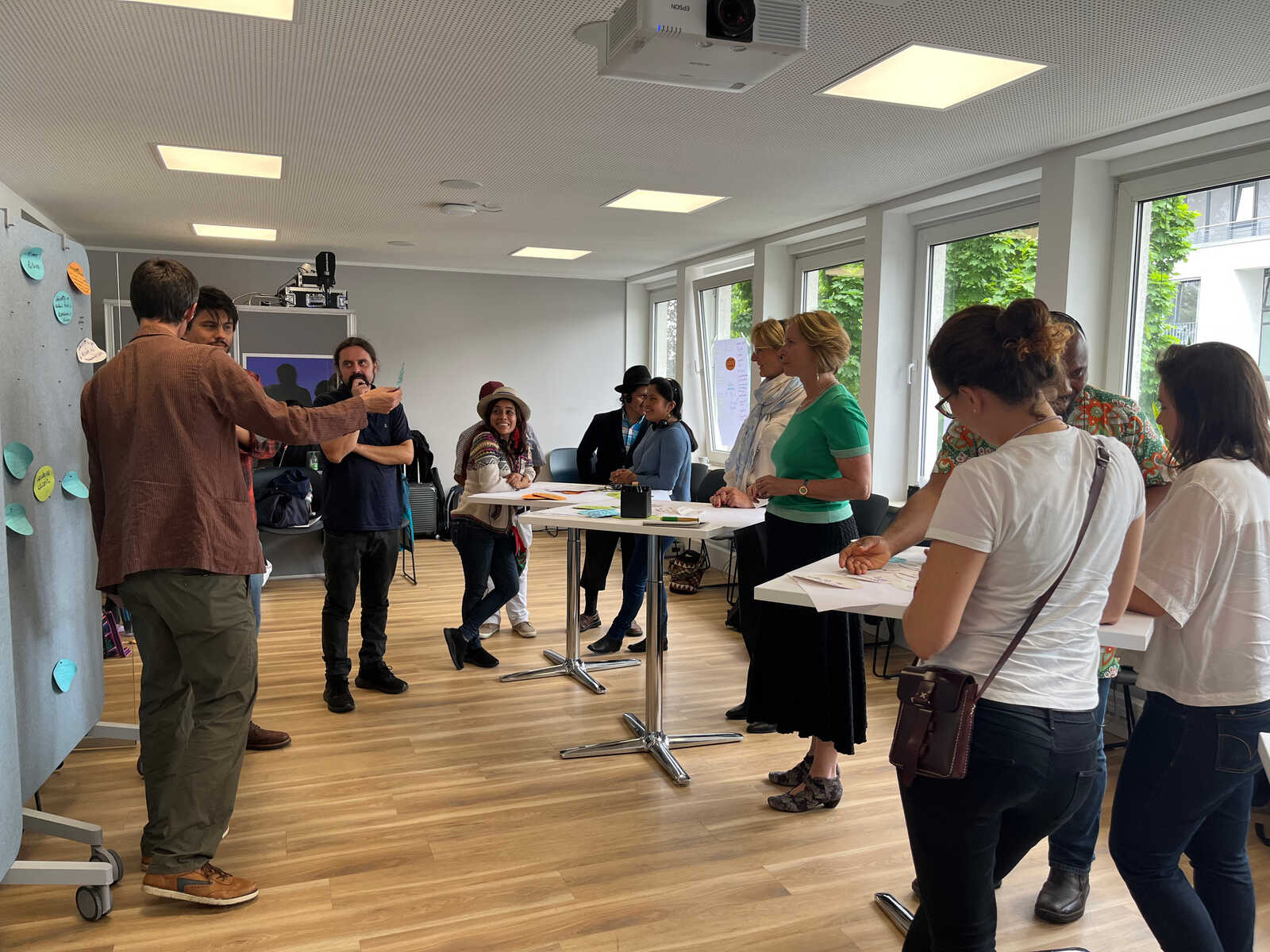
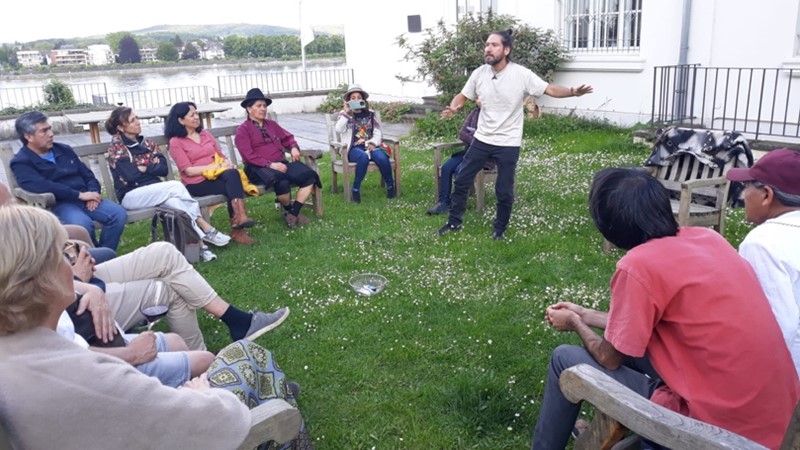
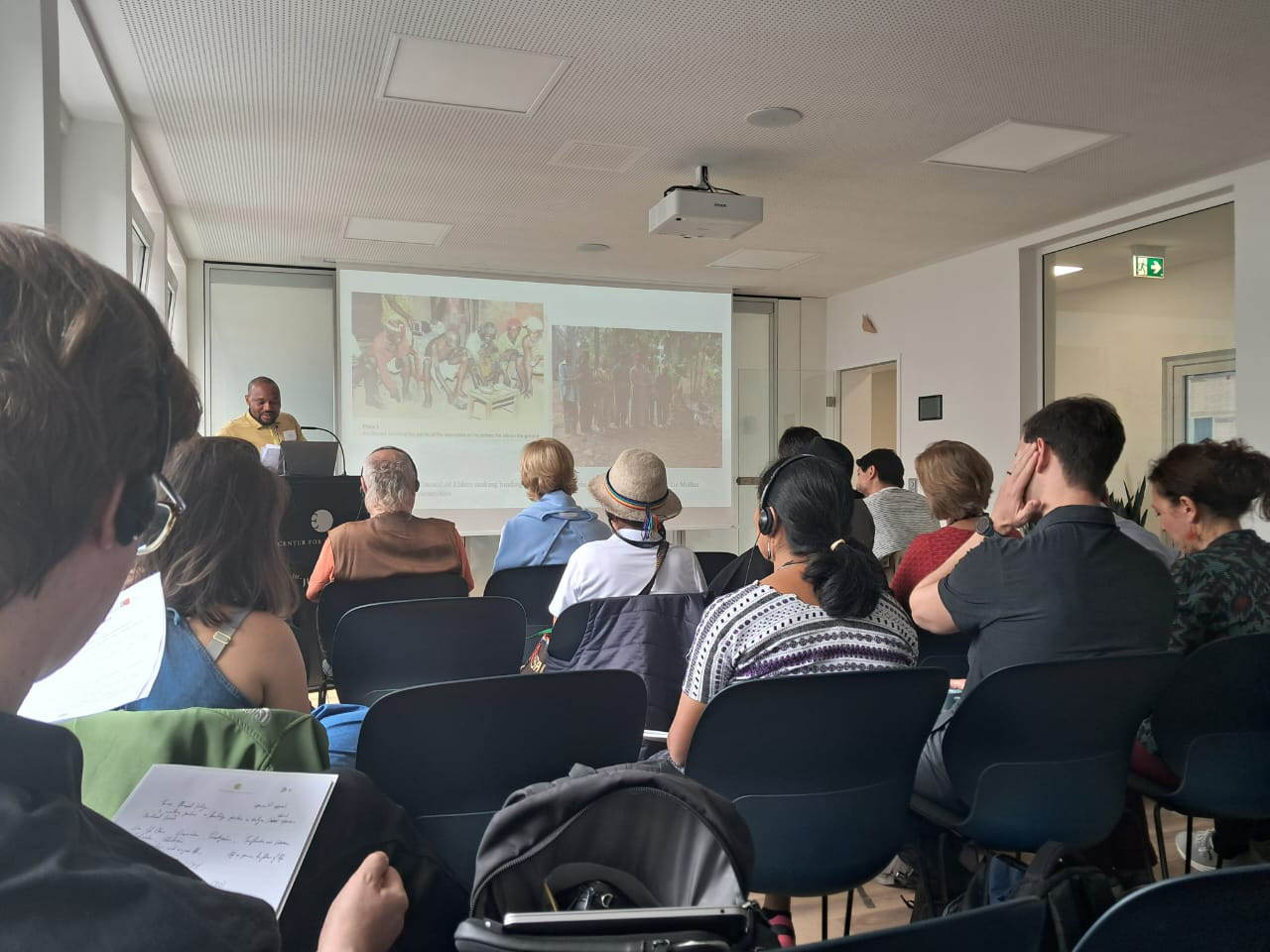
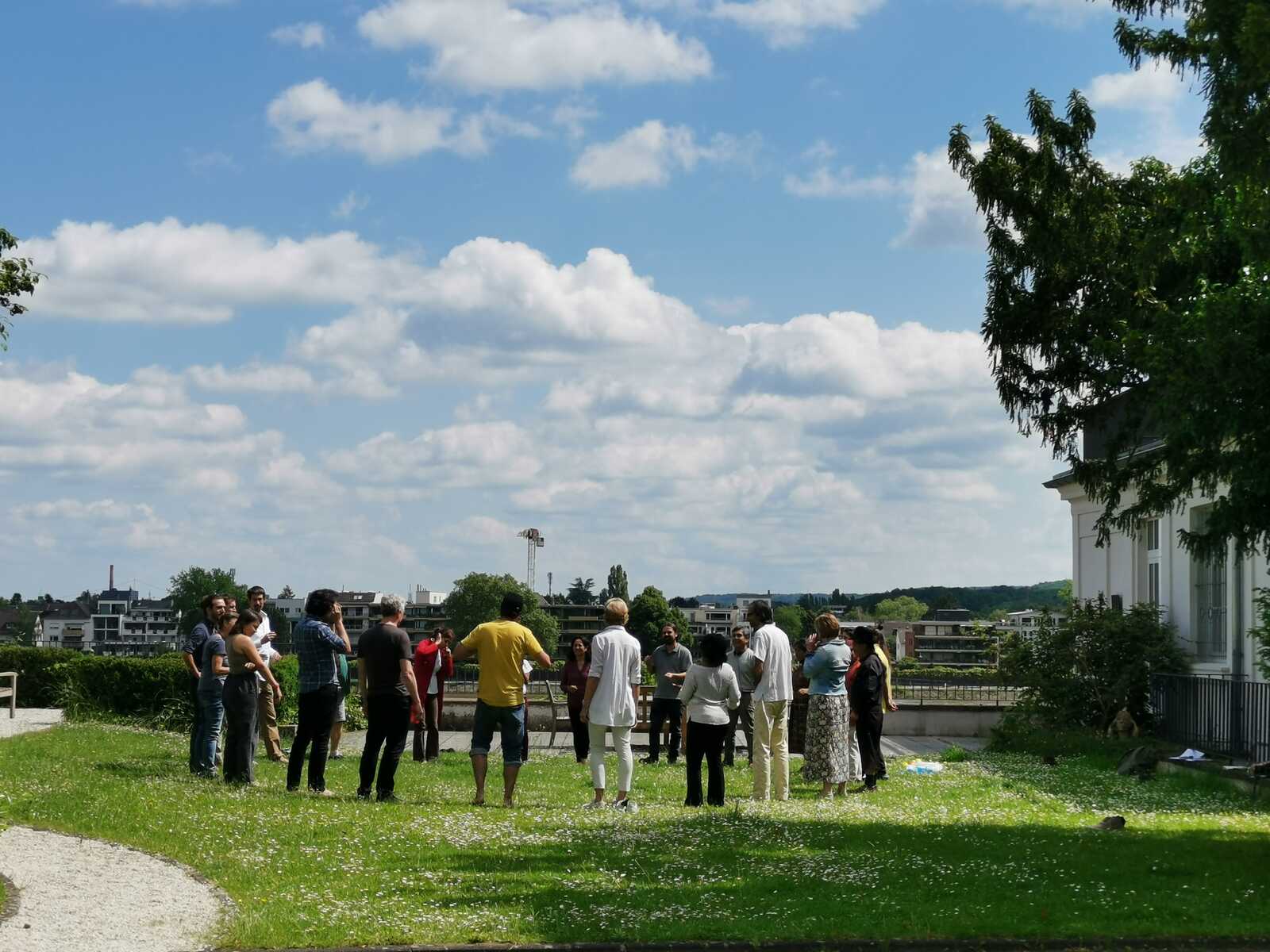
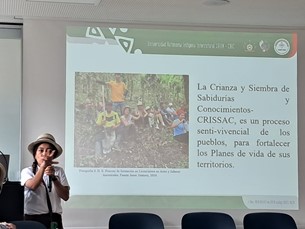
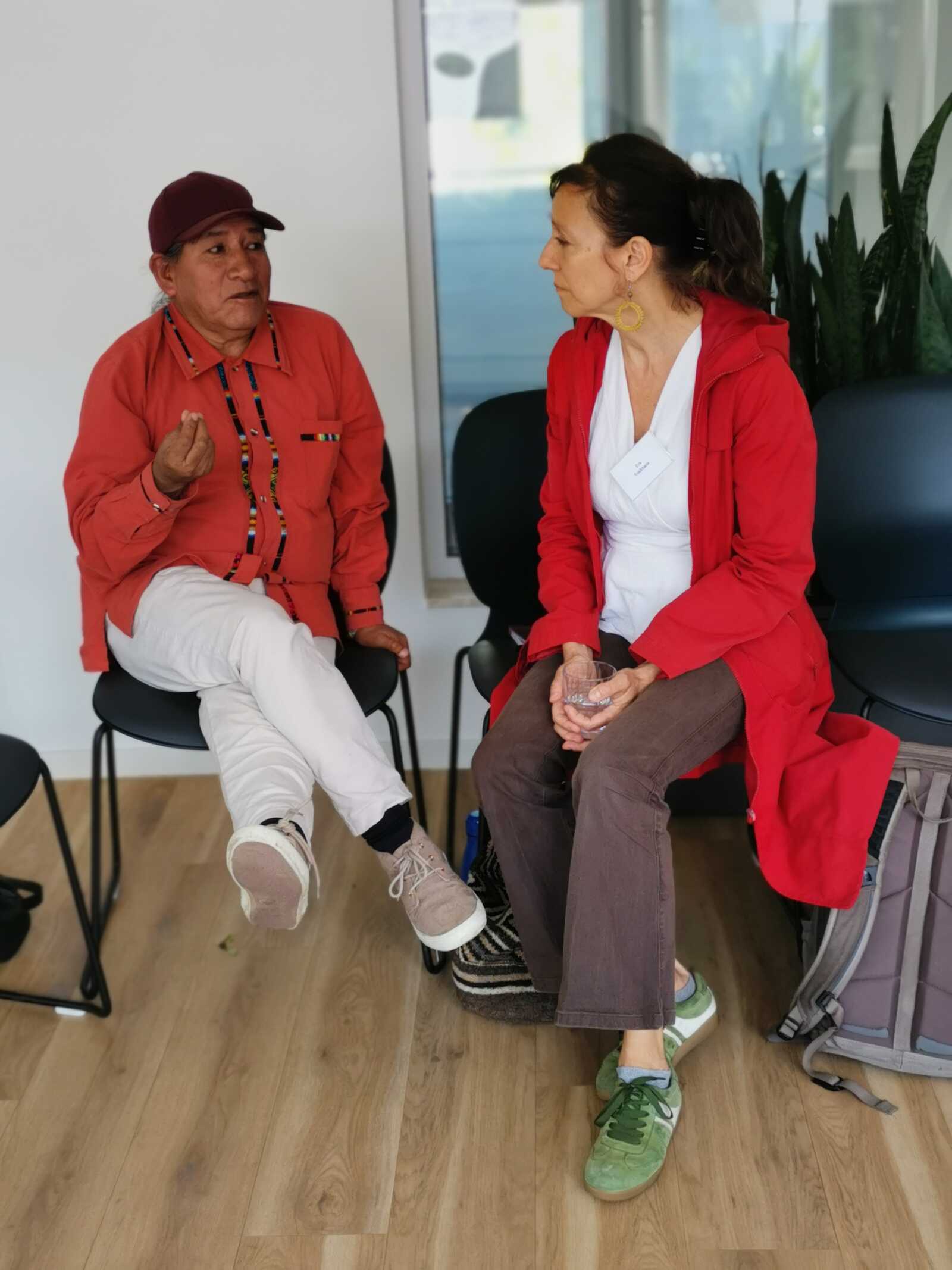
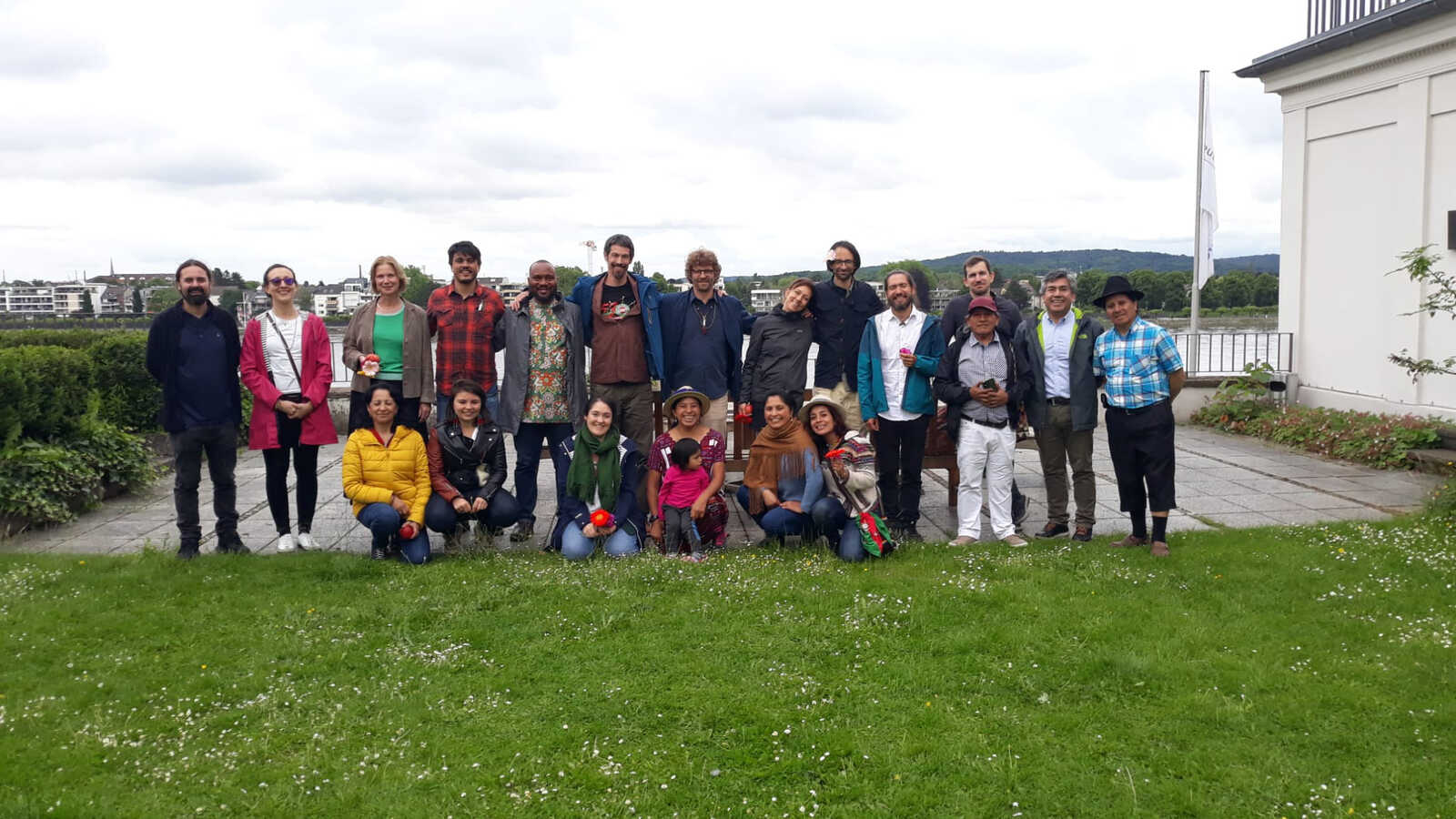
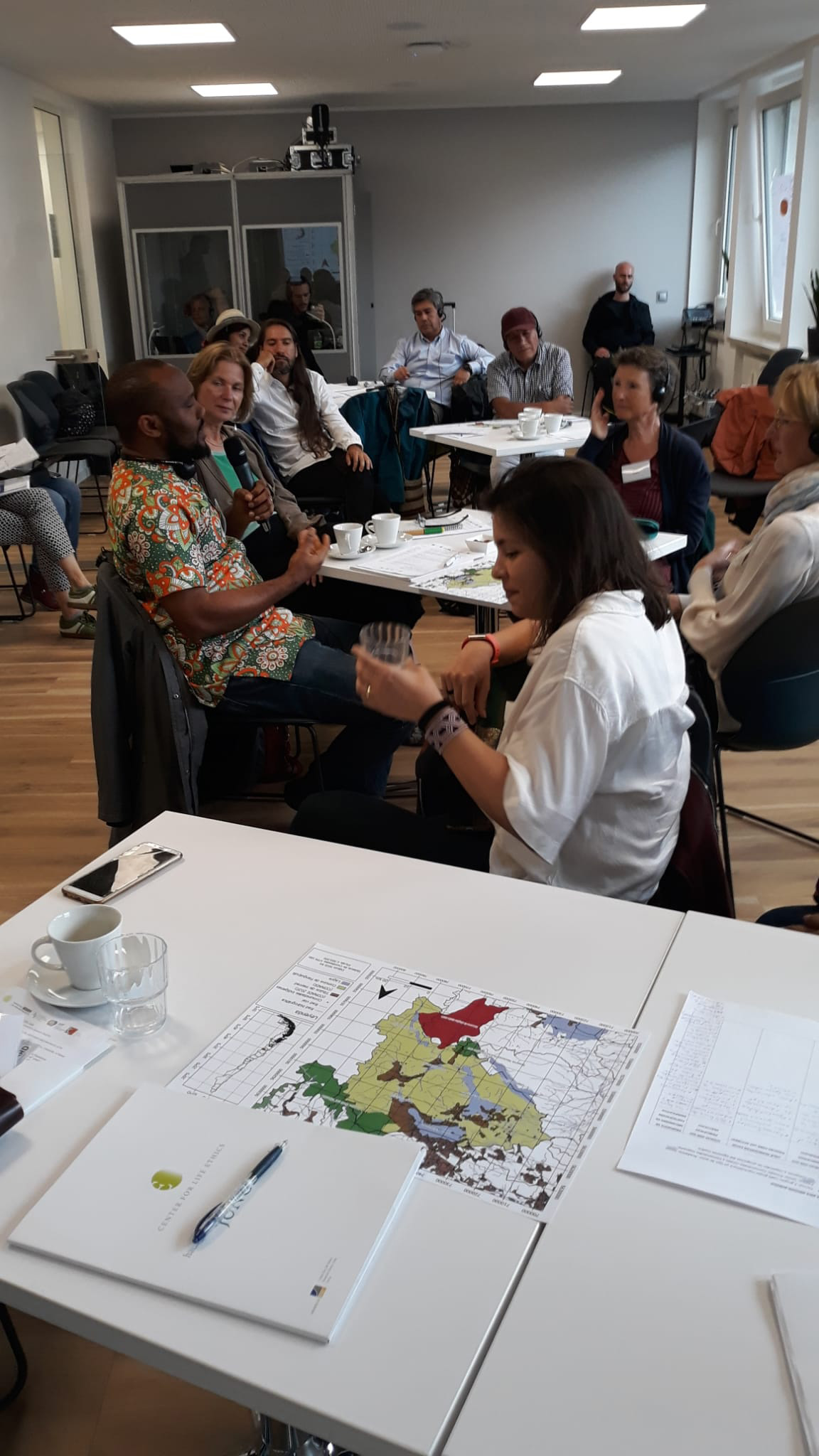
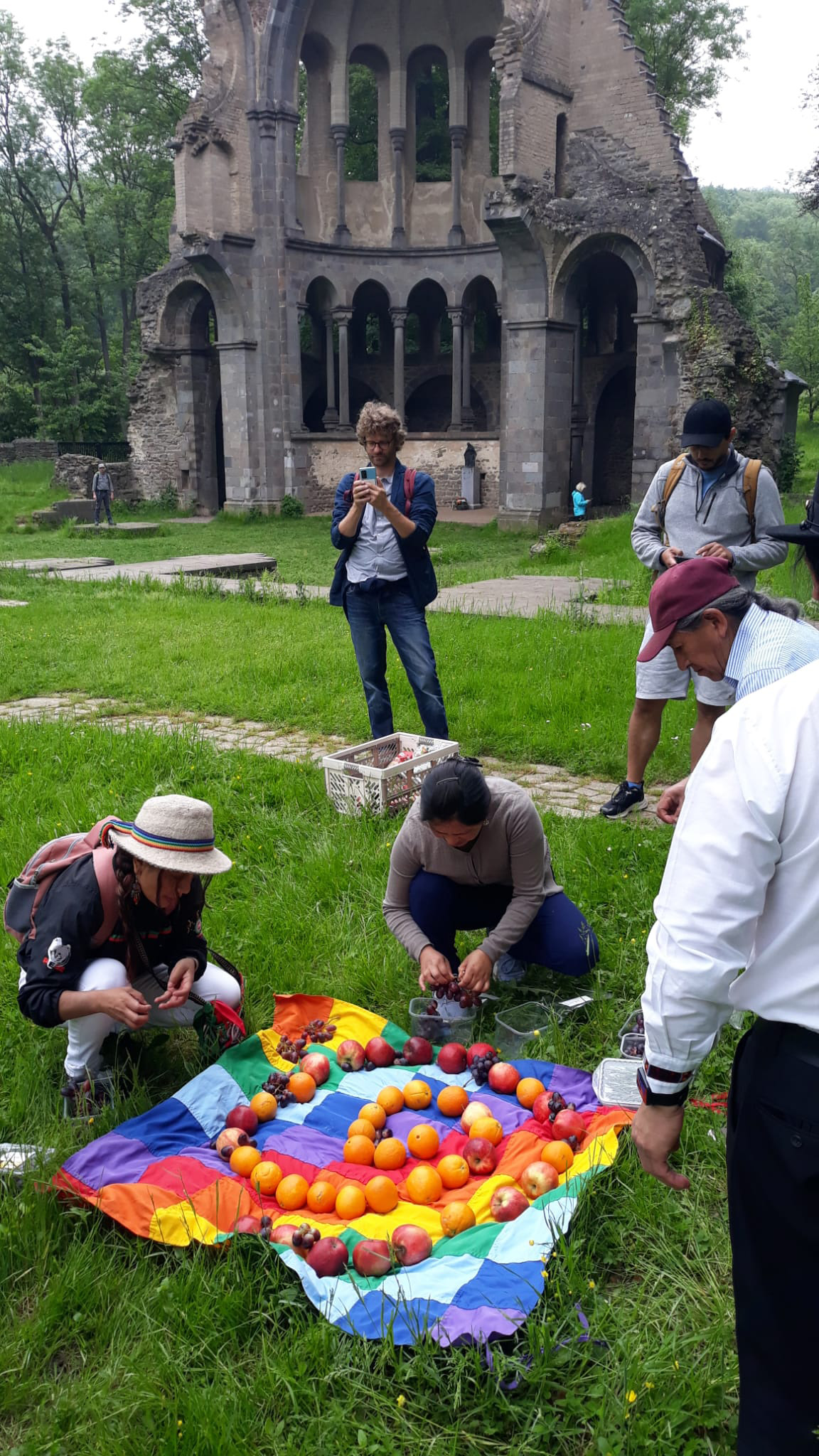
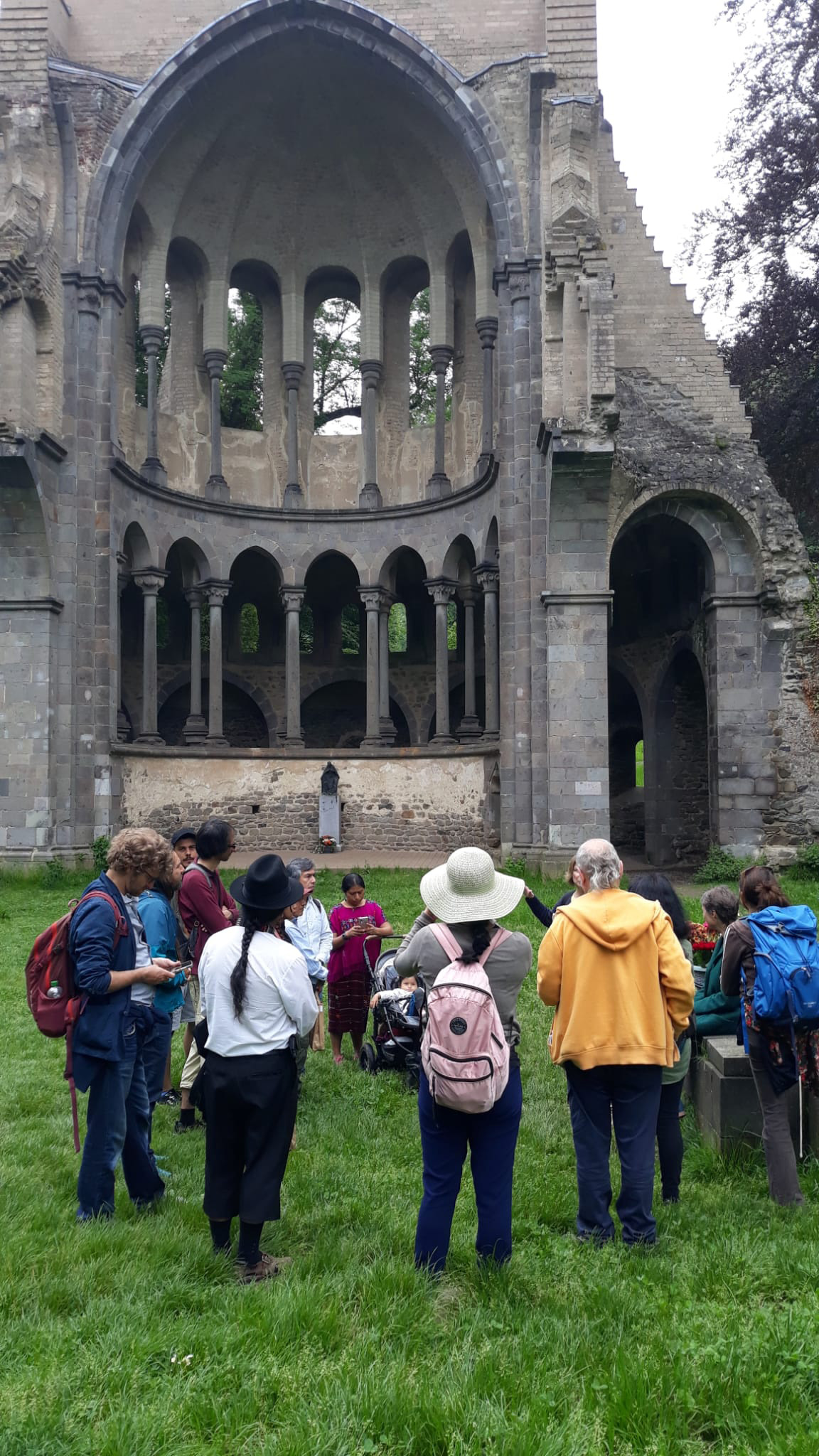
Up-to-date information in our newsletter
